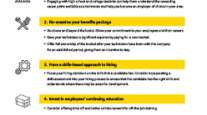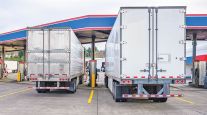Different Paths May Take Miss., Minn. Down Same Road to Higher Fuel Tax
Mississippi hasn’t raised its fuel taxes since 1987. Minnesota did it just eight years ago. However, both might be on the verge of doing so as lawmakers look to fix transportation funding shortfalls at a time of record low fuel prices.
“I think there’s a real recognition that the problem exists,” said Scott Waller of the Mississippi Economic Council. “I sense that [the legislative leadership wants] to come up with a package and that a portion of that will be through fuel taxes.”
Waller’s group conducted a study of Mississippi’s transportation needs and identified four main options to produce the $375 million needed annually to allow the state’s Department of Transportation to properly maintain its roads and bridges. They are a fuel tax hike, a vehicle registration fee increase, a sales tax hike on everything except food and medicine, and a sales tax increase on fuel.
Expanding highways and building new bridges would take an additional $150 million per year, according to Mississippi DOT spokesman Jarrod Ravencraft, who said that infrastructure improvements neglected beyond the 10th year raise repair costs six to 14 times. While Mississippi’s legislative session ends April 24, appropriation bills must be filed by March 17.
House Ways and Means Committee Chairman Jeff Smith is pushing to use a third of the $150 million Mississippi will receive this year from BP as part of the settlement of the 2010 Deepwater Horizon oil spill in the Gulf of Mexico.
“Back in 1987, we had a highway program that took us light-years ahead of where we were,” said Hal Miller, president of the Mississippi Trucking Association. “The problem is there was no money put aside to maintain it once we got down the road. We’re down that road now.
“More and more lawmakers are open to the concept that they won’t get run out of office if we do something. They’ve got 3½ years before they have to worry about [the next election]. And with fuel prices so low, this is the best time to raise the fuel tax.”
Mississippi Gov. Phil Bryant wants to fund infrastructure improvements but in a statement to Transport Topics said, “Any tax increase must be offset by corresponding tax cuts.”
Meanwhile, in Minnesota, where the governor has been pushing a transportation plan, Minnesota Transportation Alliance Executive Director Margaret Donahoe feels the same way.
The state’s tax on diesel is 28.6 cents per gallon.
“I think there’s momentum to make transportation a priority in the 2016 session after [state legislative leaders] promised to do so in 2015 but didn’t deliver,” said Donahoe, whose group’s radio ads and billboards promoting increased transportation funding call Minnesota the “Land of 1,000 Structurally Deficient Bridges.” She added: “In an election year, if those promises are not fulfilled, there will be some . . . saying you didn’t deliver, why should we support your re-election?”
The Republican majority in the House, led by Speaker Kurt Daudt, advocates devoting some of Minnesota’s budget surplus — recently slashed from $1.2 billion to $900 million — to transportation. The GOP also relies on revenue from the sales tax on auto parts and an increase in license fees, which are constitutionally dedicated to transportation. Those likely would raise $350 million per year, barely half of the $600 million the Transportation Alliance is seeking.
Democratic Gov. Mark Dayton has been pushing a 10-year, $6 billion transportation plan and supports a fuel tax increase.
So does Scott Dibble, the Democratic chairman of the Senate Transportation Committee.
“The question is, ‘Are you willing to pay, one way or the other, for what we need to get done, or are you . . . willing to live in a state where our highway infrastructure, roads and bridges continue to get worse?’ ” Dayton said at a Feb. 25 meeting with legislative leaders.
According to MnDOT, more than half of Minnesota’s roads are more than 50 years old and 40% of its bridges are more than 40 years old. A large percentage of both are in poor shape. What’s more, traffic congestion costs Minnesota businesses more than $230 million a year in additional freight charges.
“Tax increases are very difficult in an election year,” Donahoe said. “Redirecting general fund money, bonding, some one-time funding is a lot more doable. Some legislators are concerned that dedicating general revenue to transportation would be taking money away from education, health care and other needs, but we think it’s fine to be part of a package.”
Minnesota’s legislative session starts March 8 and ends May 23.




